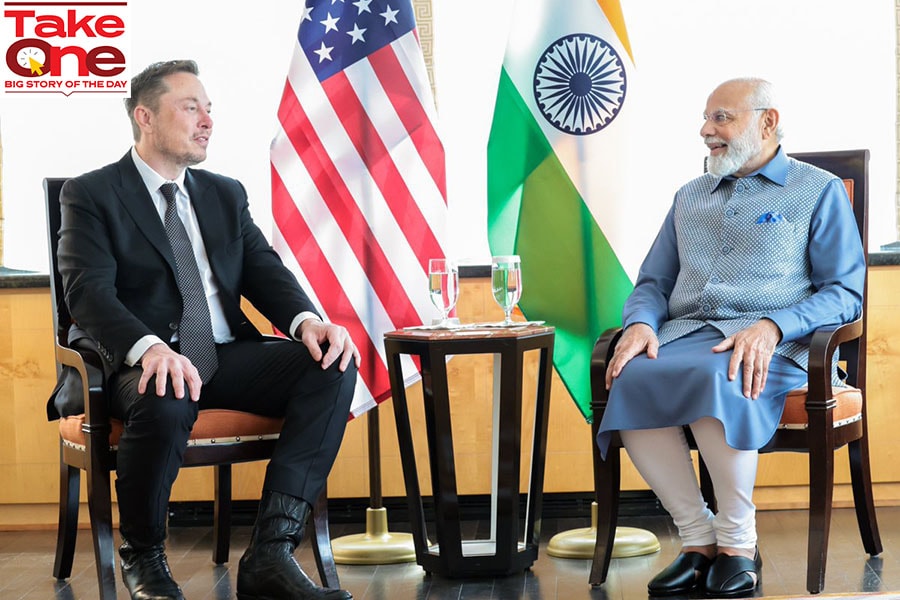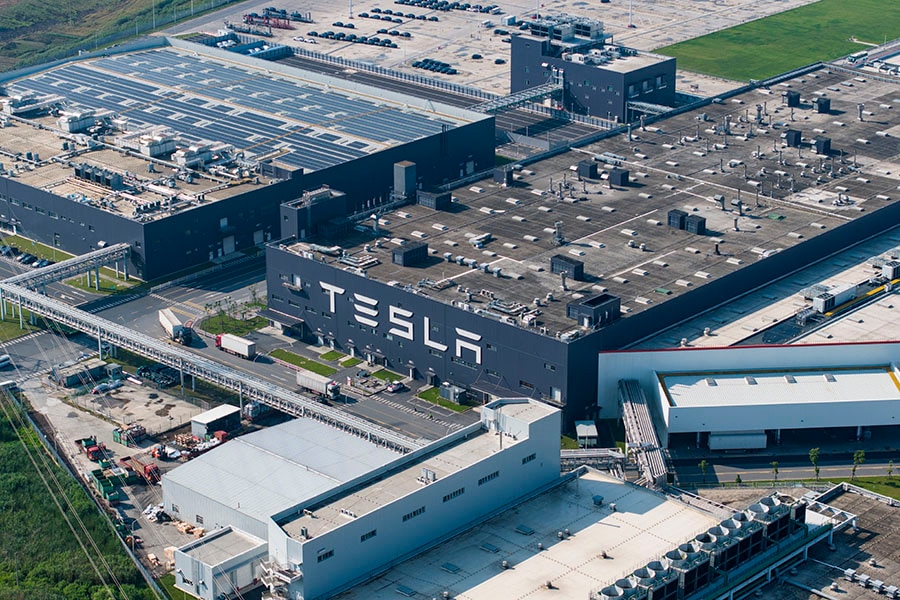
From Twitter to Tesla, how Modi's fan Musk is getting ready for big India plans
A year after its standoff with the government over selling mandates, the Tesla founder is gung-ho about entering India and complying with guidelines
 Tesla CEO Elon Musk and Prime Minister Narendra Modi during Modi's state visit to the US on June 21, 2023. Image: Courtesy Twitter
Tesla CEO Elon Musk and Prime Minister Narendra Modi during Modi's state visit to the US on June 21, 2023. Image: Courtesy Twitter
Elon Musk and Narendra Modi seem to have hit it off like a house on fire. In their first meeting since Musk bought Twitter in 2022, the billionaire businessman publicly announced that he is a fan of the Indian prime minister and that Tesla’s much-awaited entry into India will happen next year.
“I am confident that Tesla will be in India and will do so as soon as humanly possible,” Musk said after his meeting with the PM Modi. Modi is on a three-day state visit to the US, the first such since he took charge in 2014. “I would like to thank the prime minister for his support and hopefully we will be able to announce something in the not-so-distant future.”
Musk’s announcement comes a month after senior officials at Tesla flew down to New Delhi to meet with the government to work out plans for setting up operations in India. "We do not want to jump the gun on an announcement but I think it is quite likely that it will be a significant investment in our relationship with India," Musk said after his meeting with Modi.
Also read: PM Modi US visit: Dates, full schedule, events, agenda, and more
That’s a far cry from a year ago when Musk had publicly said he would skip making investments to set up manufacturing in India since the electric car maker wasn’t allowed to sell cars, to begin with. It’s still unclear how Tesla intends to start operations in India, but the government had stood firm on its decision that Tesla needed to set up manufacturing in India, and not import from China if it wanted to tap into the Indian market.









